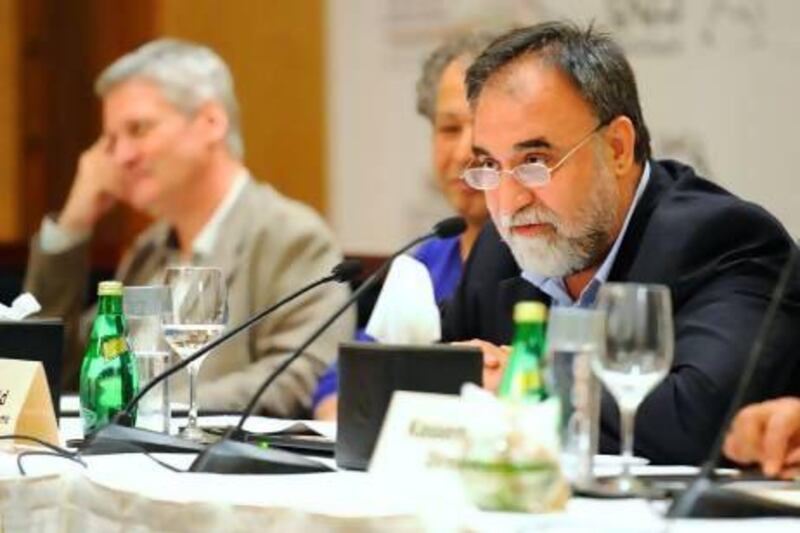The standard of Emirati films has risen steadily since the Dubai International Film Festival was held for the first time in 2004, according to Erfan Rashid, the director of the festival's Arabic programmes.
"Looking at the Emirati directors' work, there is a line that is going up in quantity and quality," he says. "Now we can call Emiratis cineastes.
"They don't make too many feature films, but there are many directors who deal with national issues and social issues and have a new view because most of them are young people and are keen to tell their stories from the past and from the present. But I think they should have more courage to tell stories.
"The most important thing that is happening in the Emirates, which will have a big effect in the next five or six years, is that there are many types of professionals. There are not only directors and actors, there are screenwriters and technicians. They are putting in the basis, we hope, of a cinematic industry. It will take time, but we are on the right path."
He says that though many Emirati directors made films about subjects rooted in the country, their stories had a much wider appeal.
"When they are talking about their places, their people, their stories, at the end of the day they are telling a story that is universal. When we love, all people love in the same way."
The makers of a drama that examines political repression found themselves being swept along by the real-life political upheaval that took place in the region last year.
Bekas deals with the plight of Iraq's Kurds under Saddam Hussein. The Swedish crew had to suspend filming in Iraqi Kurdistan after demonstrations broke out there in support of the Arab Spring uprisings in Tunisia, Egypt and other countries.
"People got killed and injured," says the producer Sandra Harms. "I could almost not take it in because, for me, it's something that I see on the news. It's not something that happens a few blocks away.
"We postponed the shoot for two weeks and things really got worse, so we had to go home to Sweden for a time."
Bekas will be screened on Saturday.
An old friend of film festivals in Dubai is back again for DIFF, and he's looking for people to point his camera at.
The Frenchman Gérard Courant has shot sections of his marathon film Cinématon at the past two Gulf Film Festivals.
The work consists of more than 2,600 short, silent clips of individuals, including Wim Wenders, Jean-Luc Godard and Terry Gilliam.
It is a continuing project currently 177 hours long. Courant is not showing any work at DIFF. Instead he is here to shoot festivalgoers for his epic masterpiece.





